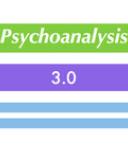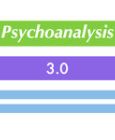
Mindfulness
Demon Victory: When winning isn't the only thing
Mindfulness helps win the "inner game" in sports
Posted February 18, 2011
By Don Greif, Ph.D.
To win, athletes have to defeat mental demons as well as their competitors. In fact, controlling those demons is the central psychological challenge most athletes face. Those who master them can display their talents and training, while those who fall prey to them underperform. In my opinion, though, most athletes—from weekend warriors to warriors we worship—pay insufficient attention to unconscious factors that sabotage performance.
Mental obstacles, such as an unconscious fear of winning, plague even the best athletes in the world and prevent them from reaching their goals.
I should know. Even though I'm a clinical psychoanalyst who spends his days behind the white noise machine of a psychotherapy office, in June 2009 I won the 2nd annual New York "CityParks Putting Challenge." That's right, I won a golf championship. Me!
OK, maybe it's not the Masters. But a P.G.A. tour professional (Len Mattiace) did provide putting commentary during the competition. And the intensity of the competition was real, real enough to require me to rediscover how satisfying and mentally challenging it is to master one's demons and perform a sport well under the pressure of formal competition.
While athletes battle many demons, some of the least recognized are fears of excelling and winning. This may seem like a strange thing to say; it conflicts with the conscious experience of most athletes who feel they want to win. If they do feel fear when competing, it's usually the fear of playing badly, losing or humiliating themselves, for which sports provides unparalleled opportunities (at least the way I play them!). However, the demons that emerge under the pressure of competition often spring from unconscious sources—fears rooted in old experiences, beliefs, and self-concepts.
Evidence of the power of demons to sabotage performance is abundant. Mental demons undermine achievement at every level of play, from the weekend golfer on the verge of shooting his personal best, to the high school soccer star trying to prove him or herself to a college scout, to the major league pitcher making his first start in the big leagues, to NY Yankee Chuck Knoblauch's infamous inability to accurately throw from second base to first. As pressure mounts, one's vulnerability to demonic interference increases.
Most athletes do not know why they suffered collapses or letdowns because these self-sabotaging forces largely operate outside of conscious awareness. While some demons can be controlled by applying well-known mental skills—positive self-talk and visualization, or maintaining a consistent pre-game routine—others overwhelm even the most rigorous attempts at applying mental strategies to rein them in. For the fear of winning lies in its invisible, stealth-like nature. It infiltrates the psyche without being recognized; it travels under the radar.
You may wonder why any athlete, professional or amateur, would fear winning. It makes no intuitive sense. Nevertheless, winning can be scary. Winners attract lots of attention. Winning creates expectations that you will win again. Winning elevates you above your peers and thereby distinguishes you from most athletes. Other people may feel jealous or envious of winners, sometimes even resentful or inadequate. Winning, then, may arouse anxiety or guilt about making others feel bad or mad. Simply anticipating this can be uncomfortable, even intolerable. In this case envisioning oneself as a winner may feel a bit like wearing a coat—or even some skin—that doesn't fit.
Ironically, while not winning may feel safer and less burdensome than winning, playing it safe by staying in your comfort zone can be worse. For unless you feel confident you are doing the best you can, you will not be entirely comfortable staying there. Part of you knows you can do better, and wants to achieve more, excel, and make the most of your talent and ability. Knowing you are not realizing your potential and achieving all you can is distressing—and may make you feel frustrated, hopeless, or depressed-not exactly a recipe for inner peace and joy.
Although in many people's eyes it is shameful, if not contemptible, to fear winning, not to address one's fears has more insidious consequences. To keep fears underground is to remain prone to self-sabotage and risk chronic failure to reach one's potential. Moreover, unexamined fears readily emerge elsewhere in disguised forms.
The strategy I recommend is identifying and confronting one's fears.
But how can an athlete recognize he or she is afraid to excel or win if these fears are hidden? It may be useful to think of times when you did not perform your best under pressure, and identify the type of mistakes you made, and what you felt and thought at the time. Then think of times—in any competitive effort—in which you were successful and received praise, recognition, or rewards, and ask yourself: How did you feel and act afterwards? Were you proud, fulfilled, celebratory, on cloud nine—or did you feel nervous, self-conscious, embarrassed, undeserving, apathetic, or deflated? Did you enjoy your success or devalue and dismiss it as "no big deal"—or perhaps attribute it to something besides your skill, talent and hard work, such as luck or others' help?
Questions like these can clarify whether you really feel entitled to win—and want the responsibility that comes with it—or are unsure that you belong in the same company as established winners. Winners allow themselves to play their best because they know that even if they crush an opponent's psyche or spirit, winning itself is not destructive. They know it is not their responsibility to protect their competitors from feeling bad.
When one feels safe to express one's fears and anxieties—to an empathic and knowledgeable listener—this establishes distance from one's demons and enables one to observe, examine and speak about them. Such mindfulness can feel like lifting a veil on a long-held, often shameful secret. Engaging in this process can turn "demon victory" into a joyous win, ridding it of its insidious power, and freeing one from its debilitating impact.
So, before I climbed the champion's podium at Trump Tower on my victorious June day I had done enough work (including in my own analytic treatment) on my athletic demons: I therefore felt entitled to win. I had vigorously and strategically prepared for the contest and put myself in the best position to win. Moreover, I maintained my composure under pressure because I could feel tense and anxious without trying to suppress, avoid or deny it, and was thus able, paradoxically, to establish distance from my nerves and focus only on putting. Of course I'm a very good putter, but my point is that making room in my experience for "demon victory" enabled me to use my abilities fully: OK, to use my limited abilities fully. I wish the same for you.
-------------
About the author:
Don Greif, Ph.D. is a psychotherapy supervisor and faculty member at the William Alanson White Institute, Executive Editor of Contemporary Psychoanalysis (where his recent article, "Revaluing Sports," appeared), and has a private therapy and forensic practice in NYC. He has consulted with the Yale women's golf team, individual amateur athletes, and performers in the arts. He is a former college lacrosse player and avid golfer and has mastered many—but, of course, not all—of his demons.
© 2011 Don Greif, All Rights Reserved



